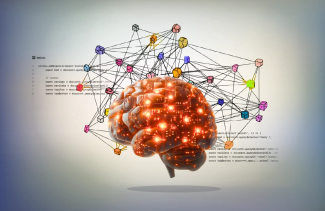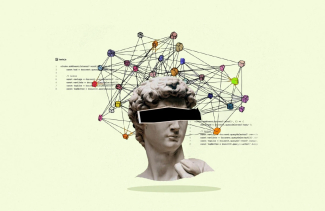
Technological innovations are on the rise. The past couple of decades have witnessed an astronomical advancement in various general-purpose technologies (GPT). The predominant GPT of the current era is the artificial intelligence.
Artificial intelligence is gaining widespread traction. It has emerged from the realms of science fiction and is increasingly becoming a stark reality. It is currently being used by increasing number of businesses worldwide to improve customer experience.
A survey by Narrative Science discovered that 38% of the enterprises were already using AI in 2017. The number is projected to grow to 62% in 2018.IDC estimated that AI revenues would grow from $8 billion in 2016 to more than $47 billion in 2020.
Moreover, NPR noted that in the past few years, scientists had made great breakthroughs in machine learning (ML), a subset of AI. ML is a type of “deep learning” that is a machine’s ability to keep improving its performance without human intervention. It uses neural networks, which imitate the functioning of real neurons. Image and voice recognition are common examples of ML.
Facebook and other apps are able to recognize facial features rapidly and prompt you to tag your friends conveniently. iPhone's custom album “People” gather all the pictures of a single person on separate files automatically. Image recognition is also replacing ID cards and passwords.
Similarly, smartphone voice recognition features like SIRI are highly intelligent AI algorithms. According to a study by James Landay, a computer scientist at Stanford, speed recognition is now three times as fast as typing with an error rate of 4.9%, dropped from 8.5%.ML algorithms and models are also set to have a profound impact on the IT industry through various outlets:
Security:
The most prominent area of IT, which can benefit from AI, is network and computer domain security. Most often, companies use the cloud-based networks store all crucial business-related data. Therefore, they require a strong protection from cyber-attacks at all cost.
AI can supplement security by detecting malware and fraud such as spam proactively. Deep Instinct, a cyber-security company, applies intelligent agents and deep learning to provide real-time, connectionless protection for all kinds of devices.
PayPal also uses AI to prevent money laundering. It’s deep learning system filters out unreliable merchants and identifies sales of illegal products to maintain its untarnished reputation.
Log analysis:
Operating systems, hardware, servers, etc. generate massive amounts of valuable data. IT professionals use this data for auditing and root cause analysis (RCA). By integrating AI into log analysis, the IT team can detect system glitches and anomalies proactively, before they result in system failure.
Further innovations in this sector can result in software that not only detects the imminent failure but also repairs itself automatically. ML also enables companies to utilize available data to make astute predictions by analyzing patterns and relationships.
Amazon uses ML to analyze the tremendous amounts of data collected about customers’ purchasing habits, website navigation trails and reactions to email campaigns. They can optimize their inventory based on the accumulated data as well as improve product recommendations to consumers to enhance their shopping experience.
Data analysis also allows businesses to enhance their digital marketing tactics. Infinite Analytics developed an ML system that predicts the user’s probability to click on a particular ad. This enables them to improve their online advertising for optimum results.
Scalable storage:
Cloud-based storages are elastic and adaptable to the requirements of the industry. Companies can trigger automated scaling depending on the upcoming data-generation events.
They can configure the storage infrastructure to scale-out automatically in anticipation of the additional load and scale-in once the amount of data reduces.
Auto-scaling can also be reactive. The storage unit can be configured to detect key variables such as CPU utilization and memory usage to initiate expanding or contracting of the storage infrastructure.
ML enables the administrators to integrate predictive scaling. The intuitive setup learns from the previous load conditions and usage pattern to decide its scaling arrangement intelligently, without any human intervention.
Energy efficiency:
Large enterprises invest in giant data centers to fulfill their technological needs. These data centers require massive power sources to function. The increasing cost of energy, as well as the environmental impact of running the data centers, has compelled various industries to improve their energy efficiency.
By utilizing ML for power management, the data center infrastructure can reduce its energy usage.Google acquired the UK-based company, DeepMind, and is using ML systems to enhance its cooling efficiency at data centers by up to 40%.
Cost Management:
IT architecture requires the considerable cost to materialize its infrastructure. ML can forecast this cost very accurately by analyzing the workloads and the usage patterns. Companies can break up the cost according to different components, various applications and multiple subscription accounts. Subsequently, businesses can predict the expected IT budgets with precision.
Conclusion
AI is an ongoing field that has been around for ages but until recently had witnessed minimum breakthroughs. The past few years have led to an innovative expansion of the use of these systems. The underlying reason for this is not only the affordable cost but also the enhanced ability of companies to reduce cost and provide a better user experience.
Moreover, public cloud providers such as Google, AWS, and Microsoft offer various advantages. These include software developer kits and APIs that enable enterprises to integrate machine-learning functionalities directly into their applications.
However, machine-learning systems come with their fair share of limitations. But the most critical constraints are not within the technology itself but in the number of individuals who can understand and implement these systems. They are precariously few!
Once we overcome the dearth of skills issue, this technology can be a game-changer for the majority of businesses, regardless of the industry.





